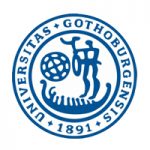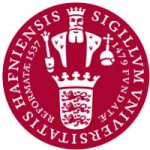项目介绍
The University of Gothenburg tackles society’s challenges with diverse knowledge. 56 000 students and 6 600 employees make the university a large and inspiring place to work and study. Strong research and attractive study programmes attract researchers and students from around the world. With new knowledge and new perspectives, the University contributes to a better future.
Doctoral position in Physics (with focus on machine learning and bone microscopy analysis, Soft Matter Lab)
The Department of Physics at the University of Gothenburg is located in the center of Gothenburg, with approximately 100 employees. The communication routes are good both nationally and internationally. The research focuses within the fields of Atom- and Molecular Physics, Condensed Matter Physics and Spintronics, and Complex Systems and Biophysics and is performed in an international environment with extensive national and international collaborations. The education programs at the Department include Bachelor- and Master programs in Physics, physics teacher-training programs, as well as outreach courses in Physics aimed for the general public. Gothenburg Physics Centre is a close collaboration with three other departments within the Faculty of Science and Chalmers University of Technology, which creates an innovative environment for all researchers and students at the department.
For further information about the Department of Physics, please visit our website at www.physics.gu.se/english. More information about Gothenburg Physics Centre can be found at www.chalmers.se/en/centres/gpc/Pages/default.aspx.
General information about being a doctoral student at the University of Gothenburg can be found on the university’s doctoral student pages www.gu.se/en/doctoral-studies
The research will be carried out in the group at the University of Gothenburg led by Giovanni Volpe. The group focuses on soft matter, optical tweezers, statistical physics and machine learning.
Information on DDSL
Data-driven life science (DDLS) uses data, computational methods and artificial intelligence to study biological systems and processes at all levels, from molecular structures and cellular processes to human health and global ecosystems. The SciLifeLab and Wallenberg National Program for Data-Driven Life Science (DDLS) (https://www.scilifelab.se/data-driven/) aims to recruit and train the next generation of data-driven life scientists and to create globally leading computational and data science capabilities in Sweden. The program is funded with a total of 3.7 billion SEK (about 290 MUSD) over 12 years from the Knut and Alice Wallenberg (KAW) Foundation.
In 2025 the DDLS Research School will be expanded with the recruitment of 19 academic and 7 industrial PhD students. During the course of the DDLS program more than 260 PhD students and 200 postdocs will be part of the Research School. The DDLS program has four strategic research areas: cell and molecular biology, evolution and biodiversity, precision medicine and diagnostics, epidemiology and biology of infection. For more information, please see https://www.scilifelab.se/data-driven/ddls-research-school/
The future of life science is data-driven. Will you be part of that change? Then join us in this unique program
Duties
At the Physics Department of Gothenburg University we are announcing the position as DDLS PhD student in Data driven cell and molecular biology.
Data driven cell and molecular biology covers research that fundamentally transforms our knowledge about how cells function by peering into their molecular components in time and space, from single molecules to native tissue environments.
We are looking for one PhD student at the Department of Physics at the University of Gothenburg as a part of the national DDLS program. The applicants will work in the development of AI tools for the study of human bone and marrow, and, more specifically, with focus on the analysis of microscopy data with Deep Learning.
Doctoral studies comprises four years of full-time study, and leads to a doctoral degree.
As part of your employment as a doctoral student, you may have departmental duties corresponding to up to 20 % of full-time employment, distributed throughout your study period, and result in a corresponding extension of the studies. Departmental duties usually consist of teaching at first- and second-cycle levels, but may also include research and administration.
Eligibility
Doctoral education requires general eligibility and, where appropriate, specific eligibility as set out in the general syllabus for the subject.
The general eligibility requirements for doctoral studies are:
- having completed a degree at second-cycle level, or
- the fulfilment of course requirements totalling at least 240 credits, of which at least 60 credits must be at second-cycle level, or
- the acquisition of equivalent knowledge in some other way, either in Sweden or abroad.
To meet the specific entry requirements for third-cycle studies, applicants must:
- have a second-cycle (advanced-level) degree in a relevant* subject area in the natural sciences, or
- have completed studies for at least 60 higher education credits at a second-cycle level in relevant subject areas in the natural sciences, or
- have completed a corresponding programme of relevance to the planned third-cycle programme, in Sweden or in another country, or have equivalent qualifications.
*Relevant for the planned third-cycle education
The specific entry requirements also include an acceptable command of spoken and written English. Guidelines for assessing English proficiency may include a minimum score of 550 on the TOEFL test (or 213 on the TOEFL-CBT, or 79 on the TOEFL-iBT).
Assessment criteria
The selection of applicants who meet the basic and specific eligibility requirements will be based on the ability to assimilate the doctoral studies.
In the assessment, special emphasis is placed on documented qualifications regarding programming, machine learning, AI tools for image analysis.
Knowledge of Python, Matlab, C/C++ or similar programming language is an advantage. Consolidated experience with standard Python ML libraries (e.g., PyTorch) and software development tooling (git and docker) is preferable. Experience in the application of AI and Machine Learning in the analysis of scientific data, digital media, computer graphics, and interactive media design is also a plus.
Admission and employment
Once you have been admitted to doctoral studies, you will be employed as a doctoral student at the University of Gothenburg.
The provisions for employment as a doctoral student can be found in ordinance SFS 1993:100.
Initial employment as a doctoral student may apply for a maximum of one year, and may be renewed by a maximum of two years at a time.
A doctoral student may be employed as a doctoral student for a maximum of eight years, but the total period of employment may not be longer than the equivalent of full-time education at doctoral level for four years.
Type of employment: Fixed-term employment, 4 years full time
Extent: 100 %
Location: Department of Physics, Gothenburg
First day of employment: 22 May 2025 or as agreed
The University applies a local agreement on salaries for doctoral students.
Please note, doctoral studies at The department of Physics] require physical presence to conduct the studies. If the admitted applicant needs a residence permit for higher education to pursue studies in Sweden, The department of Physics has the right to revoke the admission decision if the applicant cannot present a valid residence permit no later than at the start of the studies.
Contact information
Giovanni Volpe, Professor, 031-786 9137, giovanni.volpe@physics.gu.se
Unions
Union representatives at the University of Gothenburg can be found here:
https://www.gu.se/om-universitetet/jobba-hos-oss/hjalp-for-sokande
Application
You can apply to be admitted to doctoral education via the University of Gothenburg’s recruitment portal. Please apply online.
The application shall include:
Cover letter with an explanation of why you apply for the position
CV including scientific publications
Copy of exam certificate
Two referees (name, telephone number, relation)
It is your responsibility to ensure that the application is complete as per this notice, and that the University receives it by the final application deadline.
Applications must be received by: May 14 2025
Information for International Applicants
Choosing a career in a foreign country is a big step. Thus, to give you a general idea of what we and Gothenburg have to offer in terms of benefits and life in general for you and your family/spouse/partner please visit:
https://www.gu.se/en/about-the-university/welcome-services
https://www.movetogothenburg.com/
联系方式
电话: +46 31-786 00 00相关项目推荐
KD博士实时收录全球顶尖院校的博士项目,总有一个项目等着你!





